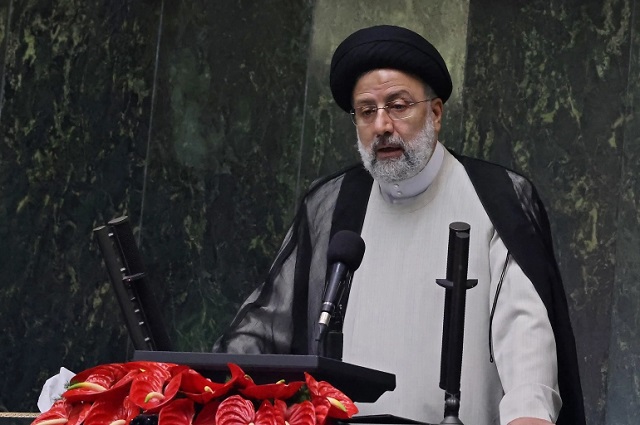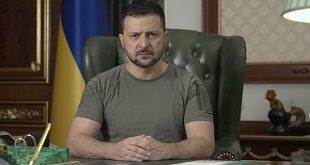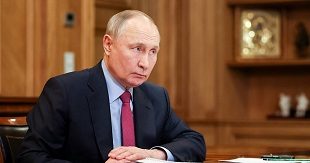
Tehran, Iran | Xinhua | Ebrahim Raisi was sworn in on Thursday as the new president of Iran, a country now standing at a juncture with critical domestic and global challenges ahead.
Talks between Iran and other related parties, which started in April in Vienna to revive the Joint Comprehensive Plan of Action (JCPOA), or the Iran nuclear deal, have been paused awaiting the green light from Iran’s new administration.
Meanwhile, Iran’s economy has suffered the dual impact of U.S. sanctions and the COVID-19 pandemic over the past nearly two years, which have aggravated people’s livelihood.
In his speech after inauguration, Raisi reiterated his vows to lift the country out of economic recession, set in motion diplomacy to remove sanctions, and prioritize expansion of ties with regional states.
His policies bear significance for not only Iran, but also the region and the world at large.
PEOPLE’S LIVELIHOOD
According to Iranian political and economic experts, Raisi should put much emphasis on addressing the durable impact of COVID-19 on the country’s economy and people’s livelihood.
As Iran is suffering from a resurgence of infections, the new government needs to speed up vaccination in any way possible by importing vaccines or prioritizing mass production of domestic vaccines, they stressed.
On Saturday, Raisi set a one-week deadline for health authorities to finalize a plan to deal with the spread and resurgence of COVID-19, official IRNA news agency reported.
Acute water shortages, which have led to recent protests in the southwestern Khuzestan province and other provinces across the country, also require Raisi’s attention. The issues, if not addressed appropriately, will add to Iran’s security and economic problems.
Moreover, Raisi said in his recent remarks that he would spread justice, fight corruption and discrimination, and try to improve people’s livelihood by removing economic hardships.
“If he (Raisi) forms a technocratic cabinet that looks wisely at the issues and problems of the people, we can hope that the cabinet of the 13th government will move in the direction of solving the problems of the country and the people,” political activist Dariush Qanbari told Iran’s Arman Melli daily on Tuesday.
Economic expert Ebrahim Nekoo said on Wednesday in an interview with Iran’s Ebtekar daily that apart from dealing with liquidity, rampant inflation, unemployment and budget deficit, Raisi should pay special attention to people’s livelihood, and deal with corruption and a widening wealth gap in the country.
NUCLEAR TALKS
If the talks around the JCPOA in Vienna succeed, Washington will return to the deal and lift its unilateral sanctions on Iran, while Iran will resume its commitments to the deal, the implementation of parts of which it had gradually stopped in response to U.S. withdrawal from the JCPOA in 2018.
But the prospect of the talks is still dim, as they have been on hiatus since late June amid stalemate between the negotiating parties, waiting for the new Iranian administration to take over the job.
On many occasions, especially after being endorsed by Iran’s Supreme Leader Ayatollah Ali Khamenei as president on Tuesday, Raisi noted he “will certainly seek to lift the sanctions” on Iran through possible diplomatic means.
“We believe that the oppressive sanctions must be removed, and no effort should be spared in this regard,” Raisi said earlier in a presidential debate.
In a Tuesday report, Arman Melli daily quoted Iranian international affairs analyst Seyyed Mehdi Zakerian as saying that “the power to decide on the nuclear issue is not in the hands of the president alone; the leadership, the (Iranian) National Security Council, the head of the judiciary and all members of parliament comment on the nuclear issue.”
Qassem Moheb Ali, an ex-diplomat and international relations analyst, told the daily on Wednesday that “Iran’s economy is tied to foreign policy, and what happens in the foreign policy environment affects the country’s economy.”
For this reason, “if nothing positive happens about the JCPOA in the future, and we do not see any openings in this field, it is not possible to predict the conditions in which Iran’s economy will move towards prosperity,” he said.
INT’L RELATIONS
Raisi reiterated on Thursday that the most important and main priority of his foreign policy is “to improve relations with neighboring countries,” while also putting “constructive and extensive interaction with the whole world” on his agenda.
“I extend my hand of friendship and brotherhood to all the countries of the region, particularly to the neighbors,” he said.
In the eyes of Moheb Ali, “one of the most important issues for Iran after the JCPOA and international sanctions is the revival of the peaceful relationship between Iran and Saudi Arabia, which can have a direct impact on the equations in the Middle East and improve Iran’s role in the region.”
Also on Thursday, Raisi stressed that Iran will support regional resistance against Israel, and enhance ties with Asian and Latin American states.
Since the Islamic Revolution of 1979, distancing from the West has played a major role in Iran’s foreign policy.
As Raisi assumed office, experts believe that the new Iranian administration will follow the tradition and make no significant changes in this regard.
*****
Xinhua
 The Independent Uganda: You get the Truth we Pay the Price
The Independent Uganda: You get the Truth we Pay the Price


